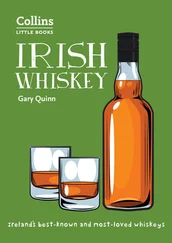“Yeah, that’s what they’re saying. She just raced right to the top of their pile, though,” he said. “Anyway, the girl’s got protection right now. Two dudes from that Gettwin Nikaya monastery on her all the time.” It took Ned a minute to understand, because the asset had mangled the Burmese.
When he got it, all he did was raise one eyebrow. He wanted to appear to be thinking, What, and you’re afraid of a couple of monks? when he was in fact thinking, Monks from the Cathubhummika Mahasatipatthana Hnegttwin are protecting Leila? What the fuck? Ned had thought those two minders were Zeya’s men. The Hnegttwin were pretty hard-line theologically — they worshipped the spirit, not the image, of Buddha — but they were no Shaolin Avengers.
“No one’s scared of a couple of monks,” said the asset, on cue. “But, you know, with these type of people, the monks are very important. They have a lot of power.”
Ned sat up for this lesson in the South Asian psyche.
“Like in Afghanistan. With their warlords and shit,” said the asset. “You might have a guy totally in your sights and then it turns out he’s Abdul Whatever’s lieutenant’s fuck boy. So you can’t go near him.”
They were parked now, with the taxi rank fifty yards off Ned’s right flank. The asset crooked his forearm in his open window, a pen in his grasp pointed toward the rank. One by one, he pointed the pen at the drivers, twisting the tip of the pen delicately, as if waiting for the last word of a stanza to come to him. Ned could see now that the asset was examining each man’s image as it resolved on the screen inside his not-at-all-cheap glasses.
“We shouldn’t let her go,” said Ned, bringing it back to Leila, though the asset seemed to have finished with her. “The girl’s a bad combination. Clueless and connected, you know?” He had to be very careful here not to out-Herod Herod; the asset must know he was a grade 4. But Whatever was going to happen to Leila, Ned wanted to be in on it.
The asset stiffened. “I got him,” he said, twisting his pen tip and squinting at his tiny screen. Then in one of his too-swift motions he had his shades off and was handing them to Ned. “Confirm,” he said.
The asset had frozen the image on the screen. Ned squinched his mouth up, like he couldn’t be sure. “Here, lemme have the lens.”
Ned saw the tang of resistance, and then its evaporation. The asset gave him the pen. You don’t have to fight them, his mentor had taught. With some men, you can establish dominance by making them give up a small, closely held thing .
Ned refreshed the screen; aimed and zoomed the pen.
Yeah. Shit. That was Aung-Hla. Thirty-nine, father of three, kept his Tercel sparkling.
“You’re really gonna let her walk?” Ned asked, aiming the pen at each of the other men in turn.
“Don’t worry about it, bro. Your boss is in on it. Dude can cook up some nasty shit. He’s using that new outfit, you know? The Ruiners?”
He’d heard about them. But Ned thought the Ruiners sounded too bad to be true: a cadre of grade 5s sitting in Aeron chairs on the thirteenth floor of a twelve-story building in northern Virginia. It was said they had full access, through every lens, tap, screen, or pipe. It was said they could reach into your life as a child reaches into the world of her toys. Not just pull, but push. They could rewrite your life; play with you, punish you, or crumple you like paper.
“It’s not him. It’s not the driver,” said Ned.
“You sure?” said the asset. Like: You’re really gonna take a stand here?
“Yeah. It’s not him,” said Ned, and shrugged. There was a sort of aikido in the effective use of condescension. It was a question of careful dosing, and placement. “I see why you thought so, though. All those guys look alike.”
Leila hated the Monday-morning conference call. The New Yorkers as usual forgot that for most people on the call, Monday morning had come and gone. In Mandalay, it was 9:30 p.m. and Leila was wondering whether she would eat chicken soup at the blue place or noodles with green shoots at the place with the tattered awning. And whether either would still be open when this call ended. The New Yorkers were all take-charge and macchiatoed and Great to have you with us, Pat .
When Leila dialed in, her connection was terrible, whirs and clicks. She cut the line and dialed in again. The same whirs and clicks. Though maybe not as loud this time, and easier to listen to than fifteen coworkers jostling for position. So she didn’t cut the line again. She pressed SPEAKERPHONE, returned the handset to its base, and listened absently to all the good intentions and machinations as she wrote in her notebook about who else she might send that e-mail to, whether the Zeya henchman who’d mentioned the bird people could have meant Bluebird, and what she was going to get her dad for his birthday, which was in a month. When it was her turn to report, she kept it to a minimum.
Leila had already decided that this call was not the venue to bring up the freeze-out she was taking from the Burmese. It had gotten worse just in the past few days. Professional relationships that she had spent months cultivating were snapping shut one by one. Heckle and Jeckle were still there — she caught glimpses of them — but they’d receded and been augmented by a rotating cast of plainclothes men who stood on the corner outside her office smoking cigarettes and speaking nonfurtively into walkie-talkies the size of cowboy boots. These guys did not wave back. She hadn’t seen Aung-Hla in days, and when she asked the other taximen about him, they shrugged dumbly. The only one who would speak straight with her said, You don’t need to know everything .
And then this morning a young man from the Ministry of Immigration had arrived by moped and served her with notice that in a week her visa would be rescinded and her presence in the country would become illegal. So she would need to loop New York in soon. But she had never figured out whom to trust in Helping Hand and she suspected that the organization would dump her and her projects just as soon as it learned she was politically toxic. Leila needed a few more days to work out an exit strategy. She was trying to find a way that she could get Dah Alice to take over the Helping Hand projects. She didn’t know whether she could pull that off or whether it would even be a net gain for Dah Alice’s organization. But there was money waiting for those nursing students; there was the ransomed medical shipment; there was the small, well-outfitted office. Maybe that should be Leila’s model for global improvement — collect privilege and office supplies from the first world and then cast them off in the third.
“Leila, can we expect to see the paperwork on those scholarship candidates soon?” asked a guy called Tim or Tom Timmiken over the bad line.
What up with that guy? From what she understood of the Helping Hand chain of command, he had no business sticking his nose in this. The problem appeared to be that back in New York, during her three-day Goal Definement and Orientation training, he had hit on her, poorly. She had clearly signaled zero interest. But he kept flinging doors practically off their hinges to open them for her. She saw him check the jut of his jaw in nearby mirrors. She’d read from a binder during the taxi ride they shared while he’d displayed to her both his forearms and his world-informedness by leaning forward and talking geopolitics with the Pakistani driver, who clearly couldn’t give a shit.
“Yeah, I’ll send that through just as soon as I can, Tahhhm.” She tried to elide Tim and Tom. Hopefully, a whir or click obscured her obscuring.
Читать дальше












